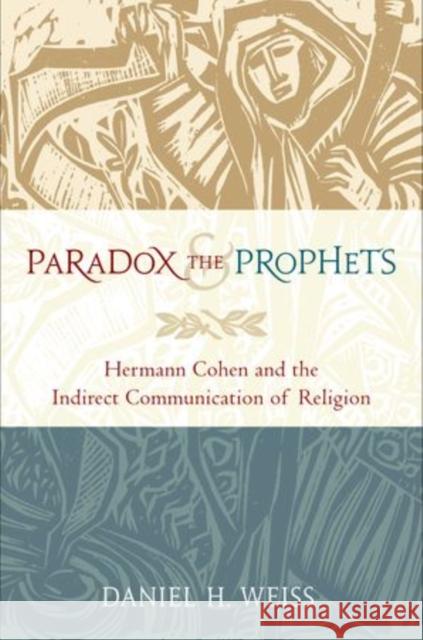Paradox and the Prophets: Hermann Cohen and the Indirect Communication of Religion » książka
topmenu
Paradox and the Prophets: Hermann Cohen and the Indirect Communication of Religion
ISBN-13: 9780199895908 / Angielski / Twarda / 2012 / 352 str.
Hermann Cohen (1842-1918) is widely regarded as the most influential representative of twentieth-century Jewish philosophy, and his Religion of Reason is often described as one of the most significant attempts to wrestle with the competing claims of philosophy and the Jewish religious tradition since Maimonides' Guide of the Perplexed. Nevertheless, Cohen has often been treated merely as an historical precursor to later Jewish thinkers like Buber, Rosenzweig, and Levinas.
Daniel H. Weiss offers an insightful new reading of Religion of Reason, arguing that the style and method of Cohen's final work have long been fundamentally misunderstood. Previous readers, puzzled by the seemingly incompatible perspectives within Religion of Reason, have tended either to uphold one or another of the text's 'voices' or to criticize the text for intellectual incoherence. Weiss demonstrates that the multiplicity of Cohen's text is an essential element of its rational and communicative purposes. Drawing upon Kierkegaard as a theorist of indirect communication, he shows how Cohen combines the 'incompatible voices' of philosophy and of Scripture in order to convey religious and ethical ideas-such as the unique God, the other as You, and the messianic future-that would be distorted in a fully consistent, single-voiced mode of thought and communication. While focusing on the details and style of Cohen's text, Paradox and the Prophets also explores the broader philosophical claim that Religion of Reason, far from representing an outdated mode of thought, serves as a model for contemporary efforts to reason about religion and ethics.










